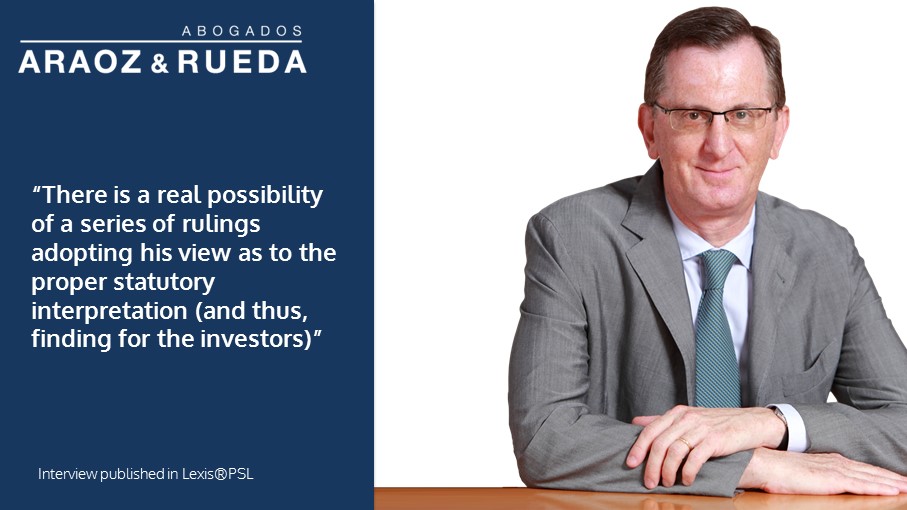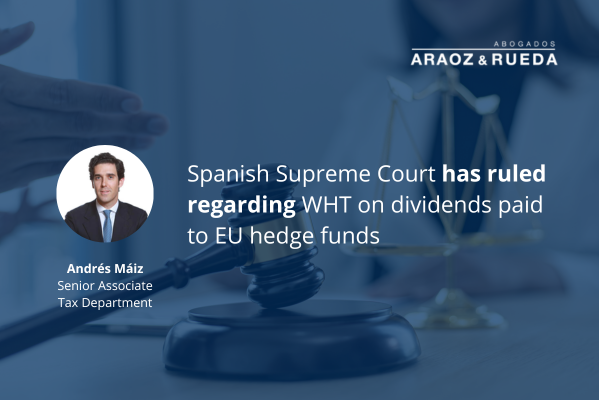Arbitration analysis: Clifford J Hendel, partner with the Spanish law firm Araoz & Rueda, examines a Permanent Court of Arbitration (PCA) tribunal’s rejection of the claimant foreign investors’ case that the respondent state had breached its obligations to them under a bilateral investment treaty (BIT) when it amended its incentive regime for the renewable energy sector after they had invested in that sector by constructing and operating three solar photovoltaic plants in the Czech Republic.
Wirtgen and others v Czech Republic PCA Case No 2014-03—Award dated 11 October 2017 and Dissenting Opinion by Gary Born
What is the importance of the decision?
This UNCITRAL case was one of a plethora of investment arbitration claims under the Energy Charter Treaty (ECT) or applicable BITs which have been pending against various European states following stiffened regulations in the renewable energy sector introduced earlier this decade, in the face of changed market conditions and the financial crisis.
The award in Wirtgen, which was made in October 2017 but which only came to the public light in February 2018, has already been the subject of particular attention. In part, this is due to its being the first of several cases challenging the same Czech legislation under BITs (in this case, the Germany-Czech and Slovak BIT) or the ECT to have reached a final award.
But probably the principal reason for the buzz the case has generated is the pointed (if not to say, scathing), 36-page tour-de-force dissent issued by the claimants’ appointed arbitrator (a titan of international arbitration and a member of a number of other renewable panels) against the majority opinion (the tribunal was chaired by another titan, who is also a very active player in the field).
What are the practical implications of the award, and how might it affect practitioners in the way they advise their clients?
For lawyers advising clients in pending or anticipated claims involving the Czech legislation, the award is very relevant and the issues appear clear, especially since the dissenting arbitrator sits on what are understood to be all of the other six pending cases, one of which is reported to have found liability and is now in the damages phase. There is a real possibility of a series of rulings adopting his view as to the proper statutory interpretation (and thus, finding for the investors).
However, for lawyers advising clients in pending or anticipated claims involving non-Czech legislation and under instruments other than the BIT at issue in this case (like the ECT), the case may be of little relevance—at the core, it involved nothing more nor less than a question of statutory interpretation, specific to this case and the Czech context. Indeed, the fact that the parties were not able to agree on the proper English translation of the relevant provision can serve as a reminder that statutory interpretation (like contractual interpretation) can sometimes be a very tricky business.
To conclude somehow, that in other cases and in other contexts and circumstances, this dissenter will tend to side with the investor’s position and interpretation and that this chair will tend to side with that of the state, would seem quite ill-conceived—reasonable minds can reasonably differ as to the content and meaning of complex (and perhaps, hurriedly and imperfectly drafted) legislation, and titans of the field cannot and should not be so easily pigeonholed.
For lawyers advising clients in international arbitration or disputes in general, the key takeaway may be what we already know—each case is fact-specific, law-specific and tribunal-specific. What ultimately is understood to be the core issue of one case, the manner in which the issue is presented, and the manner in which a particular tribunal receives the presentation, will inevitably vary from case to case.
So let’s be careful in managing clients’ expectations—yesterday’s win or loss in someone else’s case, under someone else’s contract or legislation under some other international instrument, and before a different tribunal, should not excessively encourage or discourage our client as to the result in its case.
What was the background?
At its core, the case involved the question of whether the respondent’s obligation under the BIT to provide fair and equitable treatment (FET) to covered investors was violated by certain legal and regulatory changes enacted in 2010 effectively reducing the levels of feed-in-tariffs (FIT) afforded to investors by the prior legislation enacted in 2005, and on which the claimants had relied in investing in three solar power plants in the Czech Republic.
The majority and the dissenting arbitrator agreed that the dispositive issue in this regard was whether the terms of the 2005 legislation were such as to create, as an objective matter, legitimate expectations on the part of investors (including the claimants) as to one provision of the 2005 legislation, which (in the view of the claimants and the dissenting arbitrator) provided for a guarantee of minimum FET levels separate and apart from another guarantee contained in the preceding paragraph of the legislation of an overall 15-year payback and 7% annual return.
If the provision is understood to have provided for such a guarantee, the 2010 changes—albeit permissible exercises of the respondent’s regulatory authority—would have to be understood to be in violation of its FET obligations, entitling the investors to compensation.
What did the tribunal decide?
For the majority, the language in the statute about the maintenance of FET levels, read in context, should not properly be understood to be a separate and independent guarantee (creating legitimate expectations) but rather only background or gloss on the first guarantee (not violated by the 2010 changes). Accordingly, for the majority, the only guarantees contained in the 2005 legislation—as to the 15-year payback and 7% annual return—‘were met in the present case’; thus no legitimate expectations were defeated and no FET obligation violated.
The dissenting arbitrator’s view was:
‘This is an easy case…[but] the majority proposes a manifestly implausible interpretation of the relevant Czech legislation, which contradicts [its] plain language and obvious purposes…[being] both demonstrably wrong and, in the long term, destructive of the rule of law and the authority of the Czech Republic.’
He continued:
‘The majority’s interpretation…is impossible to accept [and] is fundamentally wrong. [It] contradicts the unequivocal text [of the 2005 Act],…the undisputed purposes of the Act,…the Czech Republic’s unambiguous confirmations,…[and its] own repeated and explicit statements…in this arbitration.’
He concluded: ‘It is said that hard cases make bad law. It appears that easy cases do as well.’
Clifford J Hendel is a partner in the Madrid law firm of Araoz & Rueda Abogados. Educated in the US, he practiced corporate and financial law in New York and Paris until moving to Spain, where he practises principally in the area of international transactions and international dispute resolution, both as counsel and as arbitrator and mediator. He is admitted to practice in New York (attorney), England and Wales (solicitor), Paris (avocat) and Madrid (abogado).
Interviewed by Robert Matthews.
The views expressed by our Legal Analysis interviewees are not necessarily those of the proprietor.





